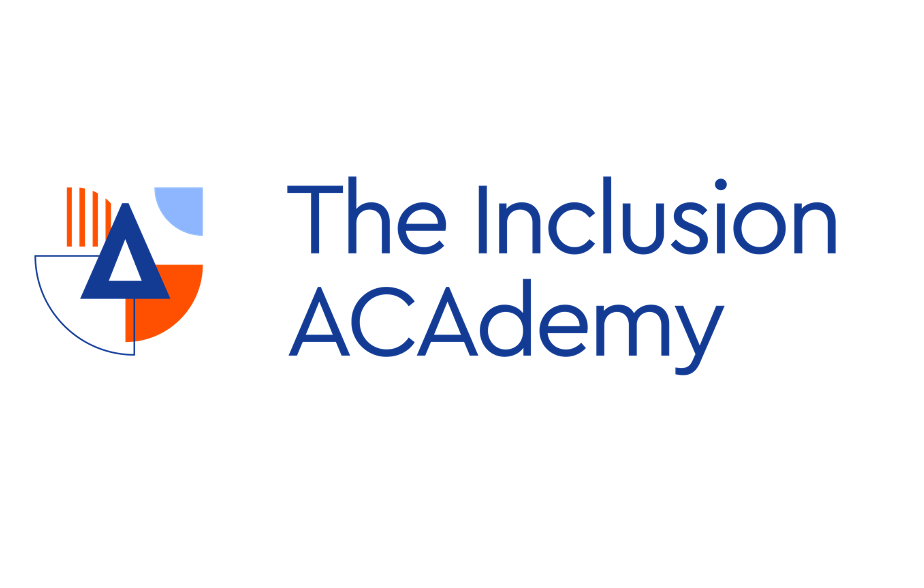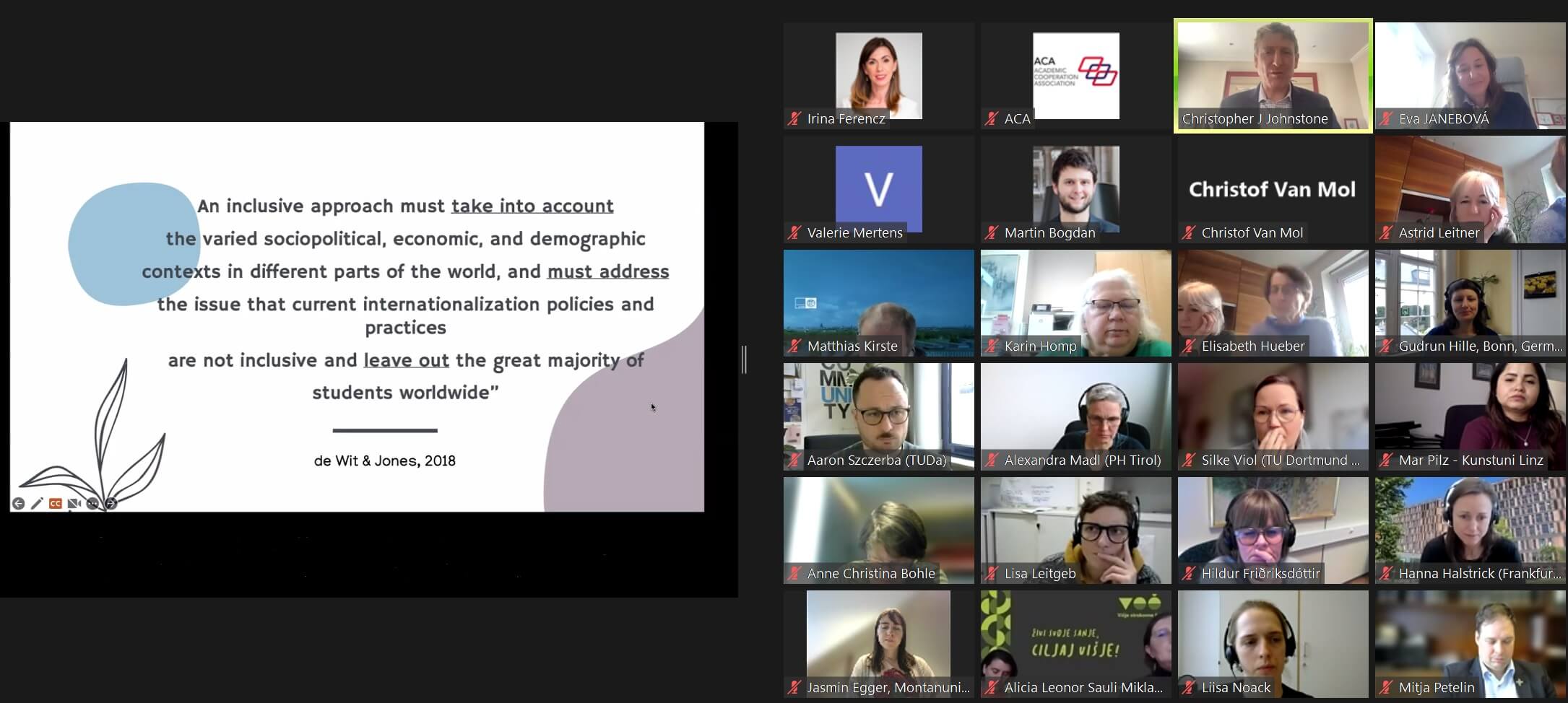Stay in the loop! Subscribe to our mailing list
The Inclusion ACAdemy is a new, tailor-made training series on inclusion and widening participation in international programmes, designed for higher education institutions (HEIs) from Austria, Croatia, Finland, Germany, Iceland and Slovenia. The training series has been created for HEIs in implementing the Inclusion and Diversity horizontal priority of the Erasmus+ programme 2021 – 2027, but its outputs are also applicable for other mobility programmes. The programme is coordinated by ACA in cooperation with the Support Centre for Inclusive Higher Education (SIHO) and the SALTO Resource Centre for Inclusion and Diversity (Education and Training).
On 14 and 16 April, The Inclusion ACAdemy started with an opening plenary session for over 160 HEI and NA participants from Austria, Croatia, Germany, Finland, Iceland, and Slovenia. The opening sessions covered:


Some key takeaways from the two plenaries:
- Inclusive internationalisation as a process begins with asking questions, institutional commitment and process mapping. It seeks to build a narrative of finding common goals, meanings and allies across different institutional and cultural settings. Eva Janebova & Christopher J. Johnstone
- In building more inclusive international higher education, we need to employ a need-based approach to ensure that intersectional approaches are applied and evaluated with due care. Valérie Van Hees
- Students from an upper-class background are more likely to study abroad because of their educational experiences, better performance-related preconditions, less fear of the costs and better perceived benefits. Nicolai Netz
- Internationalisation activities, both home and abroad, are characterised by social selectivity. Short exchanges, guest lectures and IaH activities with low barriers have the potential to reach students who self-identify as working class. Christof Van Mol
- When it comes to the social dimension within Bologna Process, Principles and Guidelines presented at the EHEA Rome Ministerial Conference in 2020 can be a good instrument for change, by developing fit-for purpose national and institutional strategies and policies. Valérie Van Hees
- With regards to the Inclusion & Diversity priority and related activities under the Erasmus+ programme, The Center for Inclusion and Diversity provides mentorship to National Agencies in developing inclusion and diversity strategies, conducts research on the needs and challenges of NA inclusion officers and offers a knowledge & resource hub for stakeholders on the new SALTO website. Josip Luša
- In the panel on implementing inclusion and diversity policies, the HEI and NA representatives concluded that more cooperation and joint efforts are needed among stakeholders to raise awareness on the importance of inclusive international higher education among institutions and students.
We would like to warmly thank ACA members OeAD, AMPEU, DAAD, EDUFI, RANNIS and CMEPIUS as well as our co-organiser Support Centre Inclusive Higher Education (SIHO) for their valuable contributions to The Inclusion ACAdemy, as well as the speakers and participants for the insightful exchanges.
More information about The Inclusion ACAdemy is available here.